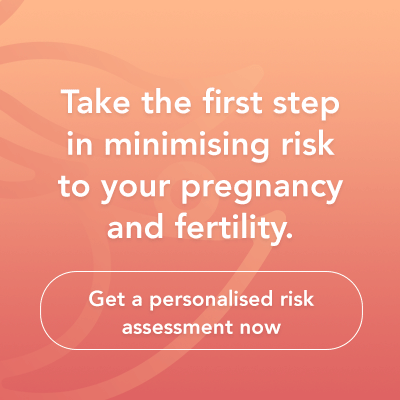Vitamin E is a naturally occurring fat soluble nutrient found in many foods and exists in eight chemical forms.
These eight chemical forms are alpha-, beta-, gamma-, and delta-tocopherol and alpha-, beta-, gamma-, and delta-tocotrienol. Alpha-tocopherol (or α-tocopherol) is the only form that is known to meet human requirements.
Why is Vitamin E important in pregnancy?
The major role of vitamin E is to act as an antioxidant to protect cells from damage caused by free radicals (compounds formed when our bodies convert the food we eat into energy).
Vitamin E may help to prevent oxidative stress during pregnancy and its associated negative pregnancy outcomes including low birth weight, preterm delivery and pre-eclampsia.
In essence, Vitamin E helps to strengthen your immune system and assists in creating and maintaining healthy skin, eyes, and red blood cells.
Major sources of Vitamin E
Vitamin E is found naturally in foods and is also added to some fortified foods.
The main sources of Vitamin E are:
- Vegetable oils (sunflower, safflower, wheat germ, canola, olive)
- Nuts (almonds, peanuts, hazelnuts)
- Seeds (sunflower seeds)
- Avocados
- Green vegetables (spinach, broccoli)
- Fats of meat and dairy.
- Fortified products (breakfast cereals, juices, margarines)
How much Vitamin E do I need?
There is currently no evidence of increased needs for Vitamin E in pregnancy. The recommended adequate intake for pregnant women is 7mg/day and increases to 11mg/day when breastfeeding. The upper level of intake for all women is 300mg/day.
Vitamin E Deficiency
Vitamin E deficiency is very rare in healthy people and is most often linked to certain diseases where fat is not properly digested or absorbed (Crohn’s disease, Cystic Fibrosis). Currently, there is no recommendation for pregnant women to supplement their intake with vitamin E.
Key Take-Aways
- Vitamin E plays a crucial role as an antioxidant and prevents oxidative stress in pregnancy.
- It is found mainly in oils, nuts, seeds and fortified foods. Including nuts, seeds and healthy fats in your diet several times a week will help you to meet your Vitamin E requirements.
- There is no need to supplement your diet with Vitamin E unless you have a specific disease where fat is not digested or absorbed.
How Kat Ridout can help
At Katrina Ridout Nutrition, we understand the importance of Vitamin E and other key nutrients in managing your health. As accredited practicing dietitians, we can help to ensure you are meeting all your nutritional needs.
For more nutrition support or to book in for a comprehensive individualised nutrition consultation to optimise your health, be sure to get in touch with Kat Ridout here.
